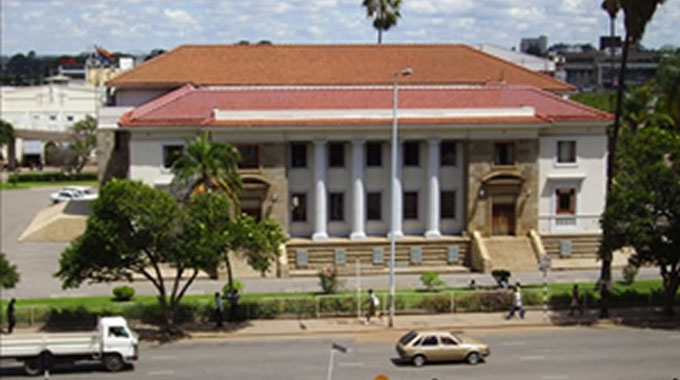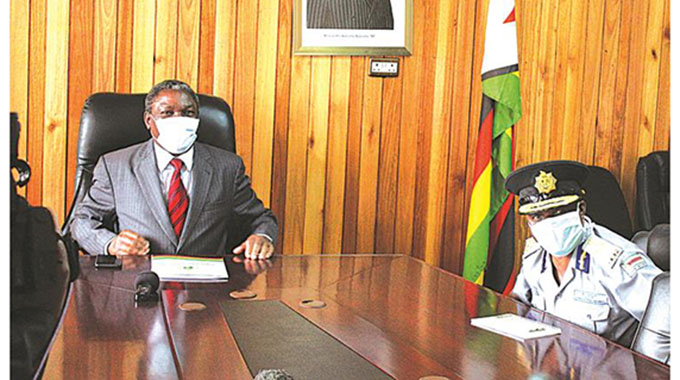Editorial Comment: Let us find a competent council

While Harare City Council has been keen to push up rates and other charges, it continues to provide worsening services and to degrade the city environment as it resolutely continues to destroy wetlands and keep up the creeping encroachment into public recreational land of the new housing stands for the well-connected.
What a council is supposed to do is well laid out, and in fact is rather logical. The first local authority in the area was the Salisbury Sanitary Board, which was exactly what it says in the title, a determined effort by those living in the little town to make sure sewage was disposed of, rubbish collected, drains kept clear and the wells supplying water were not polluted. They wanted to live in their new town, not die in it.
When it became a municipality a few years later it basically added roads to the mix, with a lot of the original rates spent on fixing the storm water drainage and working out how to smooth and maintain the roads.
One of the reasons for the major tree planting after the South African War early last century was to manage the dust, although it was also a food-for-work scheme for unemployed settlers.
But in less than a decade, the people of the little town certainly knew what they wanted their council to do, and expected it to be done. And when it was not done, and the mayor flung the municipality into bankruptcy through the most incredible incompetence and spending on luxuries, like a gold chain and office block rather than on water, sewerage and roads, they put in a brand new reformist council that did fix the proto-city.
The check sheet for what the city council has done in recent years is missing a lot of ticks in the columns marked looking after the people, although there is a good sprinkling of ticks in the columns marked looking after the councillors. Garbage is collected intermittently, although trucks have been in the budget for years but not bought.
People in the eastern suburbs look with envy when they see decent, clean and functioning garbage trucks emblazoned with the insignia of the Ruwa Local Board, not even a municipality, trundle down Mutare Road and wonder how a small town can do so much better than a big city.
We can wait days, weeks even, for burst water pipes and sewers to be repaired, and when they are repaired we can wait another month or three for the holes to be filled in, and when they are filled in we find the storm water drain choked and the new surface crumbling before the first drops of rain in a new season start falling.
We agree that some of those digging up the roads and clogging the drains are providers of other services, but the council is supposed to lay down the conditions and sign off the repairs later. Well that is another thing they do not do.
The central Government has intervened to repair city roads, and it had to declare urban roads a state of disaster, an accurate description, to legally intervene in municipal affairs and now proposes to continue the work by moving down from the main arterial and ring roads to the second tier.
Many of those roads are even more badly damaged because those who dig them up just left them.
Street lighting used to be a major service. The city council and the independent town management boards that ran many low-density suburbs were very proud as they ticked off each street and often held a little ceremony as the last street in an area was lit up.
Even the high-density suburbs were given those tower lights, not quite so good, but at least providing security and light, and Harare from the air at night looked quite impressive with these long threads of light spreading like a spider’s web, rather than the pool of darkness you see now.
Recent reports show that environmental degradation is spreading with wetlands being continually destroyed as the council goes all out to convert the city into a solid slab of concrete, without a break.
The wetlands not only have the value as a wetland, but are a sensible way of using land that is not really suitable for building as the public open spaces we all need.
It is difficult to know how the new commercial and residential stands carved out of the wetlands are allocated.
But one set of beneficiaries was accidentally discovered when one of the city councillors dumped in the intra-opposition wars was found building on a council stand she had been allocated. She said it was a perk of the job of being a councillor.
That might have horrified her predecessors until very recently, who thought being a councillor was a way of serving the community rather than winning a housing stand lottery, but at least we now know.
This is not the first time Harare has been in a major financial mess with allegations of corruption and incompetence and people getting tired of populist rascals. Early last century the municipality had overdrawn its overdraft, watched the drainage works collapse, seen the roads vanish into just clouds and suffered most of the other ills.
A group of four businesspeople decided to do something. They won control of the council and fixed things. Those who wonder why Milton Cleveland’s name adorns so much can realise that he was mayor for four years, in two batches of two years.
In the first pair of terms he fixed the finances and administration and got the basic services restored. A few years later he came back for another pair of terms and using the restored finances signed off the contracts for the first water supply dam, the first water pipes and the first power station.
The lesson that can be applied in the coming by-elections and those next year is that we can look at the candidates, and start choosing those who are already successful and know what they are doing, rather than voting on the colour of their shirts, which does not really, as we have been finding, have much to do with water supply, garbage collection, sewers and roads, the things councillors need to worry about.










Comments